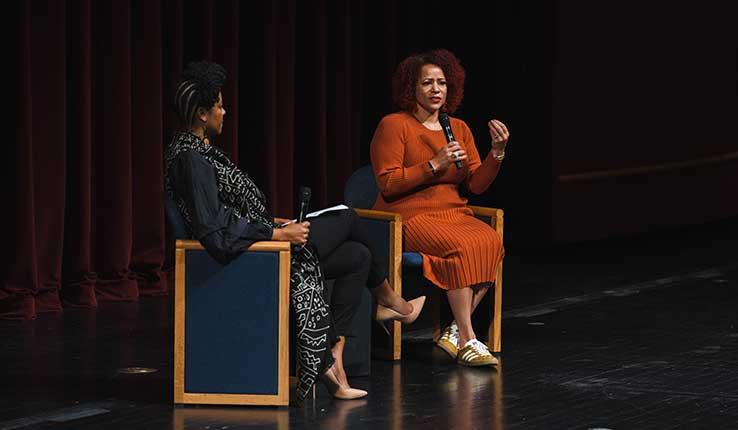Africana Studies Holds Immersive Technology Expo
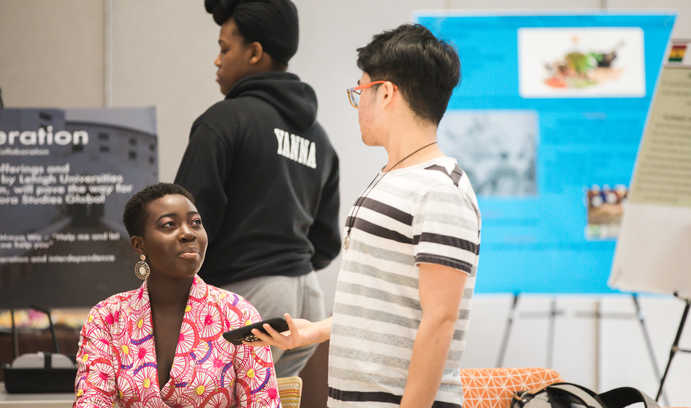
Diana Wilson (seated), founder and CEO of the non-profit finance and technology accelerator Yielding Accomplished African Women, was the expo’s keynote speaker.
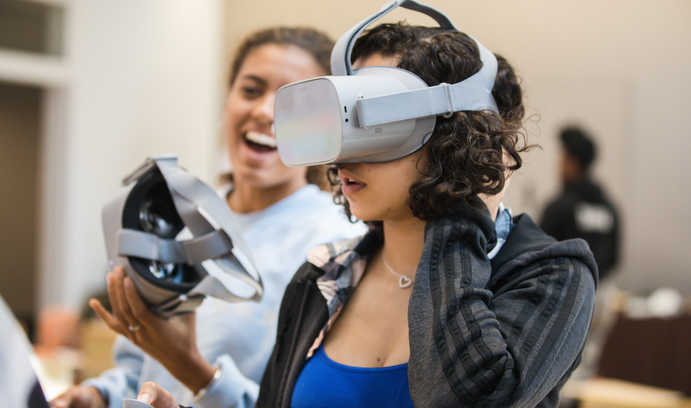
The expo exposed students to the benefits of virtual reality in the classroom.
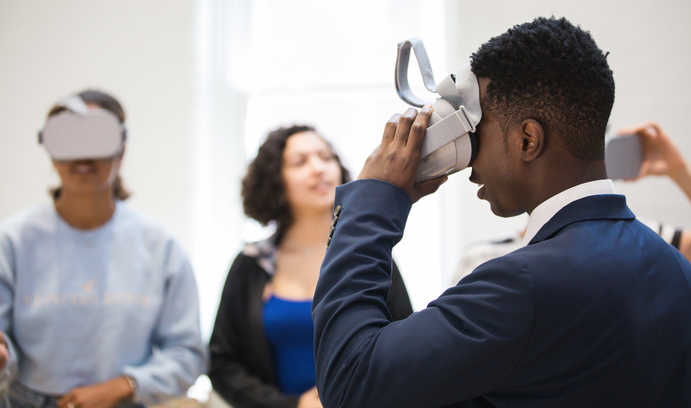
Attendees of the event had the opportunity to view the Independence Square in Accra, Ghana, through Oculus headsets.
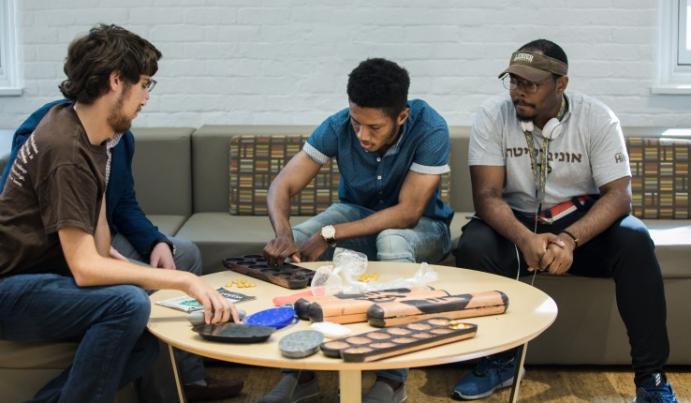
Attendees played 3-D printed sets of a West African board game, Oware.
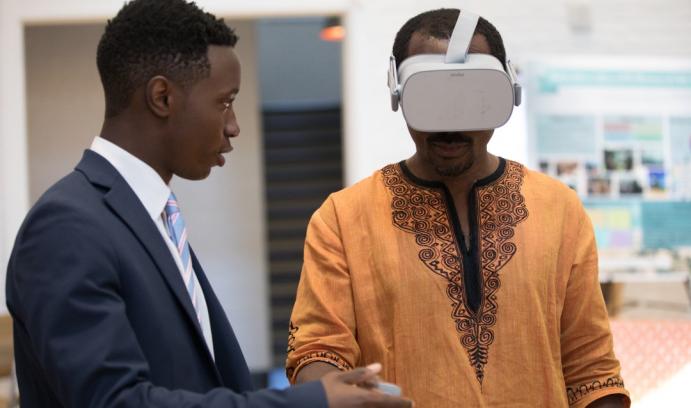
Asante Asiedu '17 '20G, left, with Kwame Essien, assistant professor of history and Africana studies at Lehigh.
Students and faculty of the Africana Studies department gathered in Williams Hall Oct. 4 to celebrate Africana Studies Day with an exposition highlighting the program’s work, particularly in immersive technology.
The expo exposed students to the benefits of virtual reality in the classroom. Asante Asiedu ’17 ’20G and Jessica Spiezio ’18 helped organize and introduce the event.
Asiedu said that over the summer, he and Spiezo had attended the Ghana Tech Summit and Ghana Tech Week. “We were able to meet a lot of interesting people and learn a lot about how to use tech in Ghana and Africa,” Asiedu said.
Asiedu and Spiezio used their knowledge of VR technology and experiences from the tech summit to develop 360-degree images of various historical sites and tourist destinations in Ghana. Attendees of the event had the opportunity to view one of these sites—the Independence Square in Accra, Ghana—through Oculus headsets.
A variety of research projects conducted by students in the Africana Studies department were also on display, ranging from “Sexual and Reproductive Health Education” to “Pentecostalism and the Phenomenon of Faith Healing” in Ghana. After the talk, attendees toured the displays and played 3D-printed sets of a West African board game, Oware.
Diana Wilson, founder and CEO of the non-profit finance and technology accelerator Yielding Accomplished African Women, was the expo’s keynote speaker. A sociology and women's studies graduate from the University of Virginia, Wilson created Yaa W to help young African women establish themselves in finance and technology sectors. Her talk centered on “Women, Technology & Entrepreneurship.”
Wilson said she and her two siblings were raised by a single immigrant mother in Newark, New Jersey. Her mother balanced long hours at work and provided care and support at home to the point where Wilson said she “didn’t even notice the resources they didn’t have.”
At school, Wilson said, she was surprised to hear of parents rewarding her peers for getting good grades. Wilson said this, combined with her experience in a low-income home, provided a unique perception of reality from a perspective that few of her affluent classmates could relate to.
“My trauma became the seeds for my revolution,” Wilson said. “My revolution is to change the way that we think of women—to change the way that women have access and opportunities to the high-skilled labor market.”
Greg Reihman, director of Lehigh’s Center for Innovation in Teaching and Learning, believes adopting VR leads to unique learning opportunities and experiences that were previously impossible to mimic in the classroom.
“What are we trying to accomplish?” asked Reihman.
“One, have an experience that somebody might not otherwise be able to experience,” he said. “Second, have an enhanced experience and supplement what we’re seeing through enhanced visuals such as additional reading, additional data or overlays that can actually make the experience better or more meaningful. Third, it sparks the imagination.”
Story by Sam Topp '19
Photos by Christa Neu
Posted on:


